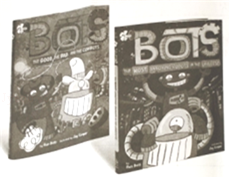A good way to pass the exam is to work hard every day. You may not pass an exam if you word hard all the time before the exam.
If you are getting ready for an English exam, do not only learn grammar rulers(语法规则)。 Try to read stories in Enlish and speak English Whenever you can.
Before you start the exam, read the questions carefully. Try to understand the exact meaning of each question before you pick up your pen to write. When you finish you exam, read you answers once more, correct the mistake (错误)if there are any and make sure that you don’t miss anything out.How can you do well in exam?
| A.work hard every day | B.Read stories in English |
| C.Be careful in doing the questions | D.Read your answers carefully. |
Only learning rules of grammar to passs an English exam.
| A.is enough (足够的) | B.is not enough |
| C.is good | D.is not good. |
It is not a good way
| A.to read English stories |
| B.to learn rules of grammar |
| C.to speak English as much as possible (尽可能的) |
| D.to work hard only a few days before the exam |
The word “ whenever ” means
| A.every time | B.What time | C.at any time | D.forever (永远) |
Before you start the exam
| A.read the answers |
| B.correct the mistake |
| C.write the meaning of each question |
| D.read the questions carefully |
Joe Bot and Rob Ot are robots.They are also best friends.The two pals live on a faraway planet.They are characters in a new book series (系列). The books are graphic (绘画) novels.They are written by Russ Bolts and illustrated (插图) by Jay Cooper. The first two Bots books are in stores now.
(1)What is the name of the book series?
A. Joe Bot and Rob Ot
B. Two Robots
C. Bots
(2)Who is the writer of the Bots books?
A. Joe Bot.
B. Russ Bolts.
C. Jay Cooper.
(3)Who are Joe Bot and Rob Ot?
A. They are robots.
B. They are best friends.
C. They are characters in a new book series.

Look at this newspaper page. Read about December holiday events in one town. Then answer the questions:
|
Holiday Events This Week |
|
|
Monday, December 12 Crafts Projects For kids ages 5 to 12 Library, 4 p.m. |
Saturday, December 17 Holiday Fair Do last﹣minute shopping Town Hall, 11 a.m. |
|
Friday, December 16 Holiday Concert Hear the chorus sing High School, 6 p.m. |
Sunday, December 18 Benefit Breakfast Bring cons to give Clothes shop, 9 a.m. |
(1)Which event is only for kids?
A. Crafts Projects.
B. Holiday Concert.
C. Benefit Breakfast.
(2)What time does the breakfast start?
A. 4 p.m.
B. 11 a.m.
C. 9 a.m.
(3)Which event is on Saturday?
A. Holiday Fair.
B. Holiday Concert.
C. Benefit Breakfast.
(4)Where is the Holiday Concert?
A. In the library.
B. In the high school.
C. In Town Hall.




It was a fine day. Sherlock Holmes invited his best friend Doctor Watson to go camping with him. They found a nice hill and put up their tent.Then they went fishing and climbed the hill.(1) They began to chat(聊天) happily.
"Watson, look up into the sky and tell me what you can see."said Holmes.
"(2) "Watson replied.
Holmes asked again, "What does that tell you?"
Watson thought for a while,"It tells me that there are tons of galaxies(星系) and planets."
Holmes continued asking, "(3) "
Watson smiled. "It tells me that God is great and powerful. At the same time, (4) ___ "
"Oh, I think so. Is that all?"asked Holmes.
"No, as for the weather, (5) What does it tell you?"Watson said.
Holmes laughed. "Someone has stolen our tent."
A. They went to sleep early.
B. humans are tiny.
C. At the end of the day, the two friends lay down on the grass for the night.
D. it will be a sunny day tomorrow.
E. What else does it tell you?
F. It was raining hard when they got to the top of the hill.
G. I can see millions of stars in the sky.

Amazing China is a 90﹣minute documentary about the development of China. Many people have watched it.We asked some students how they liked this movie. Here are their opinions.
▲The director Wei Tie made this successful movie. It shows that China has progressed rapidly in the past nearly 70 years.
﹣﹣Li Lin
▲This movie drew a picture of common people's great work. I'm proud of our country because all the Chinese try to achieve Chinese dream.
﹣﹣Xu Wei
▲In this documentary, we saw the longest sea﹣crossing bridge in the world, Hong Kong﹣Zhuhai﹣Macao Bridge. Now, China also has longer high﹣speed rail network (高铁网) than any other country.
﹣﹣Liu Yang
▲The film helped people to know China better. The stories in the movie touched my heart deeply. From then on, I decided to work harder than before.
﹣﹣Huang Lei
(1)What kind of movie is Amazing China?
(2)Who is the director of this movie?
(3)Why is Xu Wei proud of China?
(4)Which is the longest sea﹣crossing bridge in the world?
(5)Did Amazing China touch Huang Lei's heart?

Welcome to Sanhe Airport
|
From |
To |
Departs(出发) |
Arrives |
Flights(航班) |
Prices |
|
Yueyang |
Chengdu |
16:00 |
18:00 |
EU6672 |
¥1138 |
|
Xi'an |
Yueyang |
13:05 |
14:40 |
GS7686 |
¥1320 |
|
Kunming |
Yueyang |
18:40 |
21:00 |
HD1035 |
¥1310 |
(1)It takes to fly to Chengdu from Yueyang.
A.an hour
B.two hours
C.three hours
(2)You can take from Xi'an to Yueyang.
A.EU6672
B.GS7686
C.HD1035
(3)How much is the air ticket from Kunming to Yueyang?
A.¥1310
B.¥1320
C.¥1138
